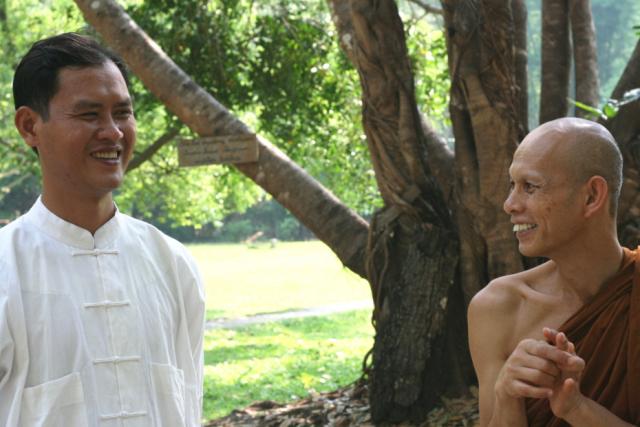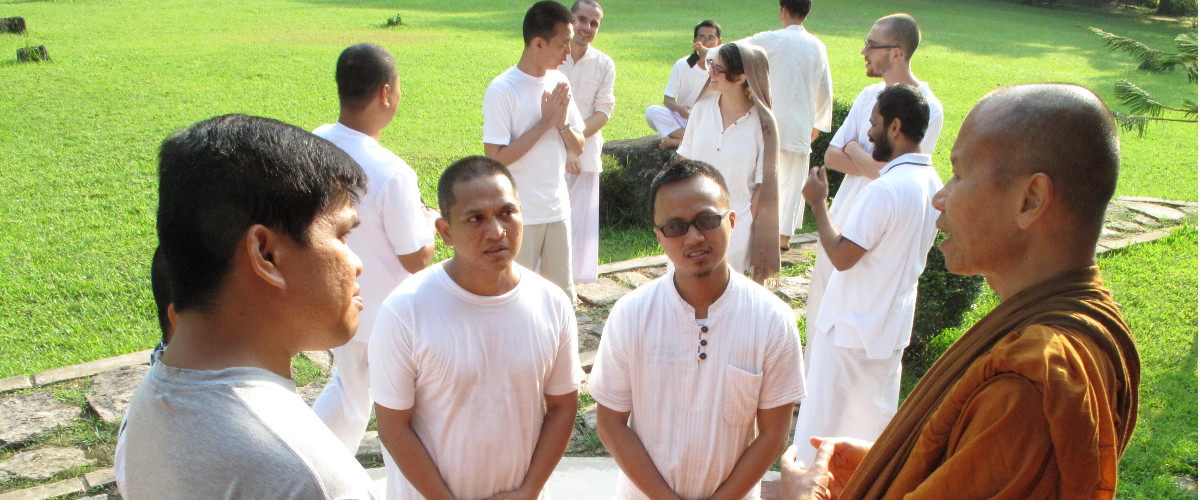Sustainability is a hot word today among scientists, economists, politicians, religious leaders, and others especially concerned with humanitarian values. It has been linked to economics, ecology, social welfare, social justice, gender equality, financial security, conserving energy, eradicating poverty, and, of course, finding meaning in life. And it is a topic of concern for the Jesuits engaged in dialogue with Buddhists.
Among all the major religions, Buddhism may claim to be the most concerned with sustainability. The Buddhist philosophy of karma ties together every existent being in every conceivable world, and the consequences of everyone’s action are believed to impact on everyone else. Even the Buddhas, Bodhisattvas, gods, and demons are not exempt from the law of karma.
However, although Buddhism counsels to “cultivate a limitless heart” “with good will for the entire cosmos” extending the sphere of compassion to all beings, it had been quite reticent and even negligent in expressing universal love and in sponsoring sustainability causes.
That is changing. In 1970s, Thich Nhat Hanh, a Vietnamese monk and popular exponent of Buddhism in the West, put forward Engaged Buddhism which refocused Buddhism on sustainability concerns advocating energy conservation, simpler life, and social justice among other goals. Engaged Buddhism received a powerful boost when eminent Buddhist leaders such as the Dalai Lama, the Thai social activist Sulak Sivaraksa, Thich Nhat Hanh, and the Cambodian monk Maha Ghosananda founded the International Network of Engaged Buddhists in 1989.

Sustainability is something that all people are called to practise. “What Pope Francis and Buddhist leaders like the Dalai Lama and Thich Nhat Hanh remind us of is that, whatever little it may be, each of us must contribute to sustainability. In Laudato si’, for instance, the Pope tells us, ‘Only by cultivating sound virtues will people be able to make a selfless ecological commitment.’”
This is an extract from an article written by Fr Francis Britto SJ, a Buddhist scholar and lecturer at Sophia University in Japan. Read the full article.
In August 2016, the Jesuit Conference of Asia Pacific will be convening a multi-sector meeting titled “A call to dialogue on sustainability of life in the ASEAN context” in Yogyakarta, Indonesia. In the run up to this, we are publishing stories on sustainability as it relates to one of the nine participating sectors – Dialogue with Buddhism, Dialogue with Islam, Indigenous Ministry, Social Apostolate, Migration, Reconciliation with Creation, Higher Education, and Basic Education and Formation.
Related story: Converging to dialogue on sustainability of life








